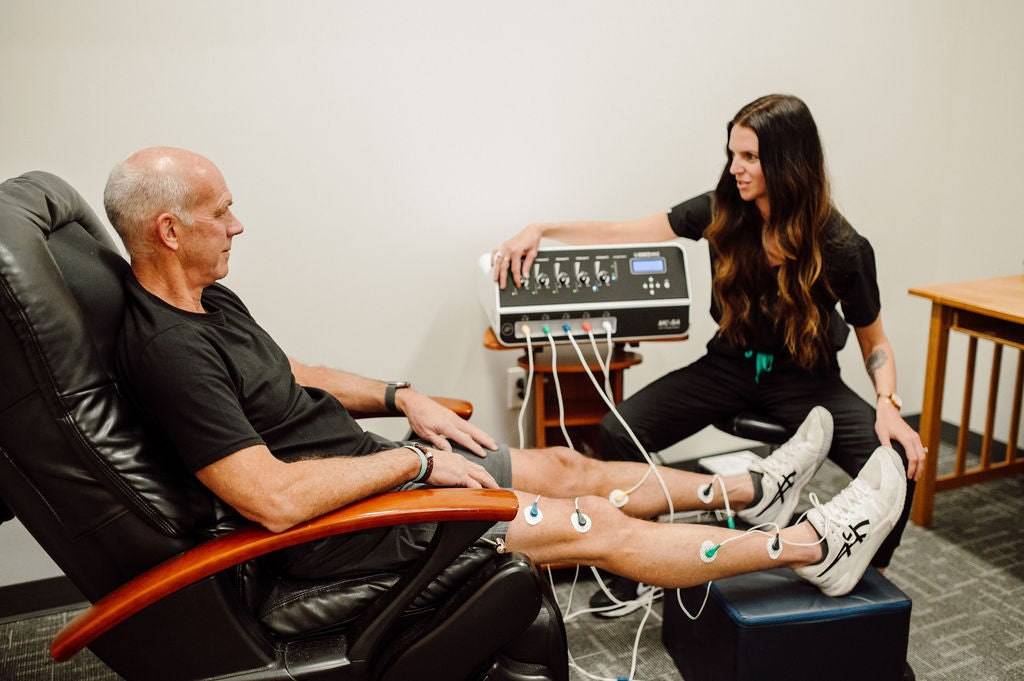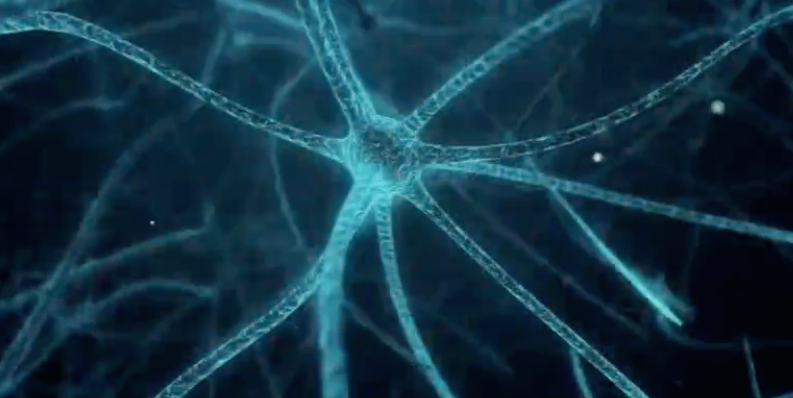A New Innovation in Neuropathy Treatment
We’re proud to provide Scrambler Therapy at Hopkins Health and Wellness Center – one of only two clinics in Minnesota offering this cutting-edge treatment.
Scrambler Therapy is a breakthrough in neuropathy care, offering a non-invasive solution for chronic pain. Our personalized approach is designed to help you regain control and find hope, even when other treatments have fallen short.
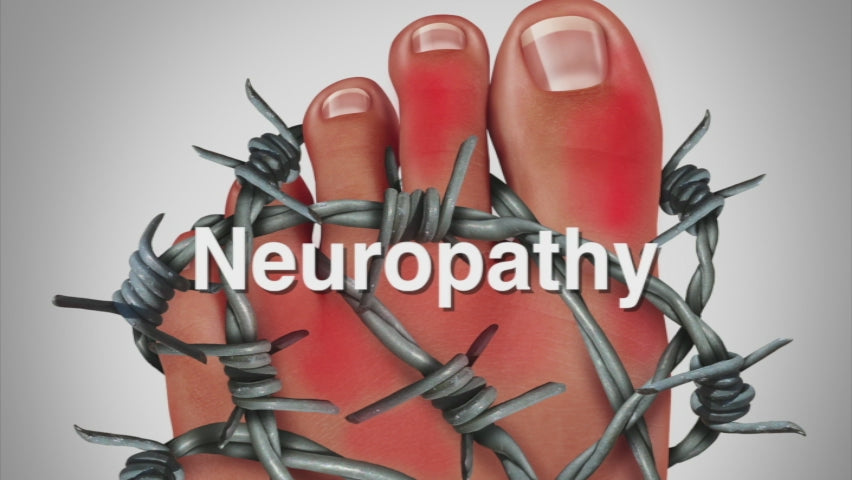
What is Scrambler Therapy?
Scrambler Therapy is a non-invasive electro-cutaneous treatment designed to retrain the brain’s perception of chronic pain. It works by delivering normal, non-pain electrical signals through the nerves that have been transmitting pain. This process, known as neuroplasticity, helps the brain reinterpret these signals, reducing or eliminating the sensation of pain.
The Scrambler Therapy device resembles an electrocardiogram machine, with leads placed around the affected area. These scrambled electrical signals replace pain messages with non-pain signals, effectively retraining the brain to recognize the treated area as pain-free.
Scrambler Therapy Program Description
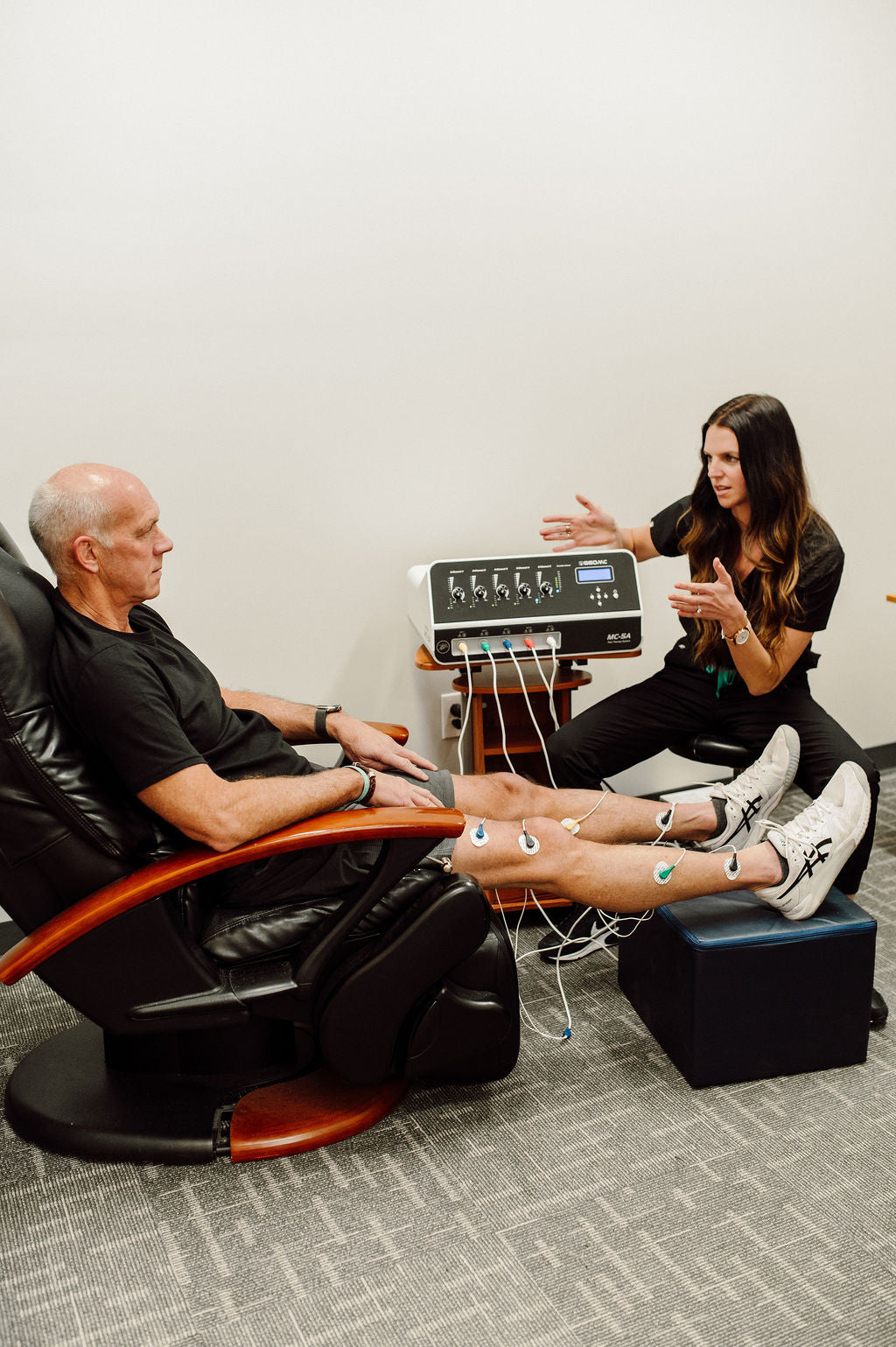
What to Expect During Scrambler Therapy Treatments
- While in a comfortable seated position, the area of pain/neuropathy is first defined, and a set of leads is placed in normal sensation skin sites close to the area of pain/neuropathy.
- The electrodes are then turned on with a gradual increase in intensity to a point where the patient can feel sensations, short of pain.
- When successful, the patient reports that the buzzing sensation has replaced the area of pain/neuropathy. Throughout the session, patients are encouraged to communicate their experiences, allowing our trained therapists to make any necessary adjustments to optimize the effectiveness of the treatment.
- The scrambler machine stays on for about 50 minutes following successful electrode placements. The electricity is then turned off and the patient commonly reports that the pain/tingling is markedly improved.
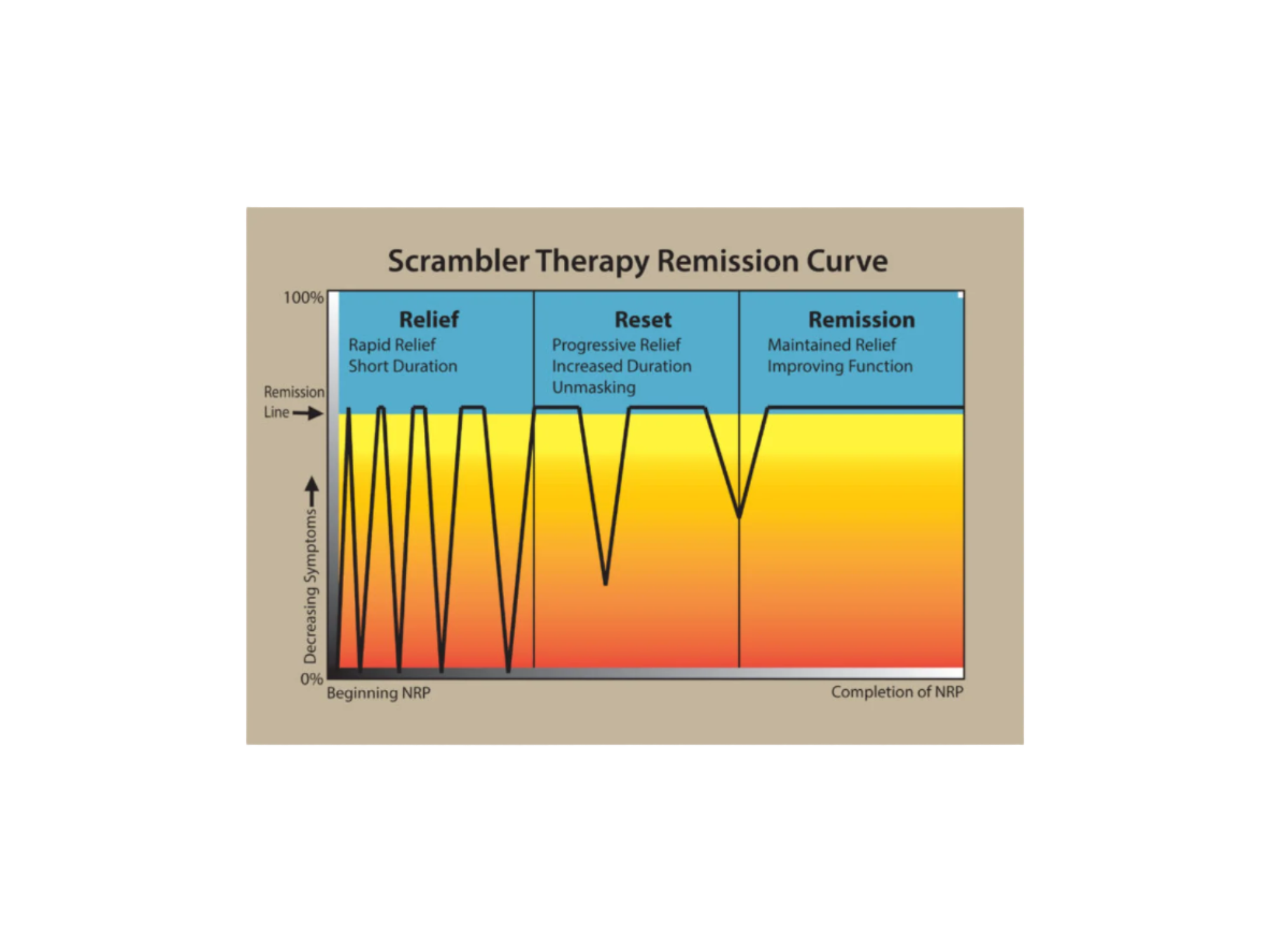
Typical Scrambler Therapy Remission Curve
After one treatment, the benefit is often relatively short-lived, lasting for minutes to hours. With repetitive days of treatment (standardly up to 10 treatments, although stopped earlier if the problem goes away completely and lasts overnight), the period of benefit increases until it lasts for a 48 hours. This is typically a sign of remission.
The benefit largely persists for 3 to 9 months. Some patients relapse and can be successfully retreated, oftentimes only needing an additional 1-2 sessions.

